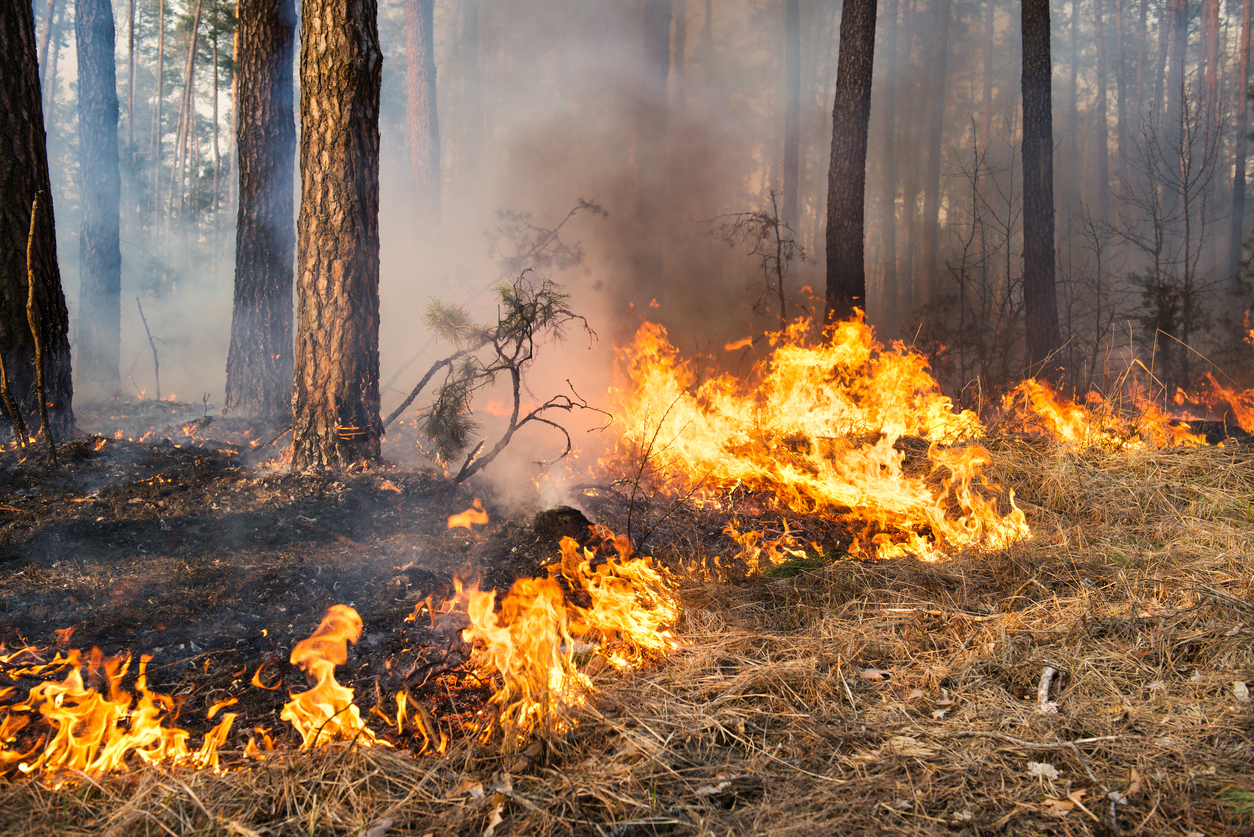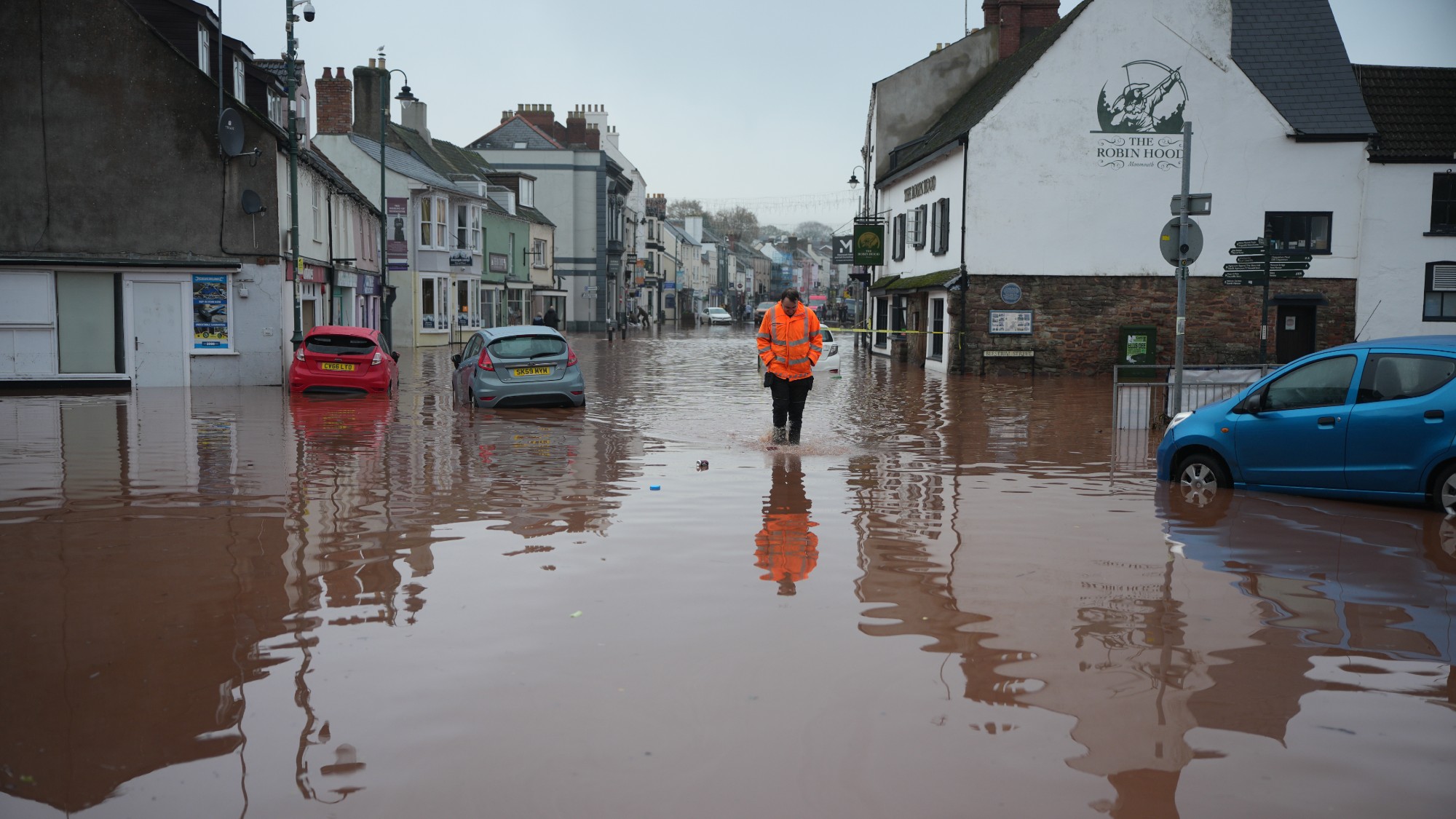Trump administration argues that Earth will inevitably be ruined by climate change, so we might as well keep using fossil fuels


The Earth is already ruined, so why bother trying to save it?
The Trump administration released a report characterizing climate change as a lost cause, arguing that aggressive steps to curb rising global temperatures aren't necessary since they won't halt catastrophic damage anyway, The Washington Post reported Friday. An environmental impact statement for a decision to freeze fuel efficiency standards predicted that we are currently on track for a 7-degree increase in average global temperatures by the end of the century.
An increase of 7 degrees Fahrenheit, or about 4 degrees Celsius, would bring devastating and deadly consequences to most of the world. So if that's our fate, argues the report, what's the point in trying to fight it? It would be much more fun to go out with a fossil-fueled bang, since increasing greenhouse gas emissions slightly would only make a tiny difference in our inevitable heat-induced deaths, the statement suggests.
The Week
Escape your echo chamber. Get the facts behind the news, plus analysis from multiple perspectives.

Sign up for The Week's Free Newsletters
From our morning news briefing to a weekly Good News Newsletter, get the best of The Week delivered directly to your inbox.
From our morning news briefing to a weekly Good News Newsletter, get the best of The Week delivered directly to your inbox.
Governments would need to take drastic measures to sufficiently decrease carbon emissions, which "would require the economy and the vehicle fleet to move away from the use of fossil fuels, which is not currently technologically feasible or economically feasible," reads the report.
"The amazing thing they're saying is human activities are going to lead to this rise of carbon dioxide that is disastrous for the environment and society," scientist Michael MacCracken told the Post. "And then they're saying they're not going to do anything about it." Read more at The Washington Post.
A free daily email with the biggest news stories of the day – and the best features from TheWeek.com
Summer Meza has worked at The Week since 2018, serving as a staff writer, a news writer and currently the deputy editor. As a proud news generalist, she edits everything from political punditry and science news to personal finance advice and film reviews. Summer has previously written for Newsweek and the Seattle Post-Intelligencer, covering national politics, transportation and the cannabis industry.
-
 The former largest iceberg is turning blue. It’s a bad sign.
The former largest iceberg is turning blue. It’s a bad sign.Under the radar It is quickly melting away
-
 How drones detected a deadly threat to Arctic whales
How drones detected a deadly threat to Arctic whalesUnder the radar Monitoring the sea in the air
-
 ‘Jumping genes’: how polar bears are rewiring their DNA to survive the warming Arctic
‘Jumping genes’: how polar bears are rewiring their DNA to survive the warming ArcticUnder the radar The species is adapting to warmer temperatures
-
 Environment breakthroughs of 2025
Environment breakthroughs of 2025In Depth Progress was made this year on carbon dioxide tracking, food waste upcycling, sodium batteries, microplastic monitoring and green concrete
-
 Crest falling: Mount Rainier and 4 other mountains are losing height
Crest falling: Mount Rainier and 4 other mountains are losing heightUnder the radar Its peak elevation is approximately 20 feet lower than it once was
-
 Death toll from Southeast Asia storms tops 1,000
Death toll from Southeast Asia storms tops 1,000speed read Catastrophic floods and landslides have struck Sri Lanka, Indonesia, Thailand and Malaysia
-
 Can for-profit geoengineering put a pause on climate change?
Can for-profit geoengineering put a pause on climate change?In the Spotlight Stardust Solutions wants to dim the sun. Scientists are worried.
-
 How will climate change affect the UK?
How will climate change affect the UK?The Explainer Met Office projections show the UK getting substantially warmer and wetter – with more extreme weather events



